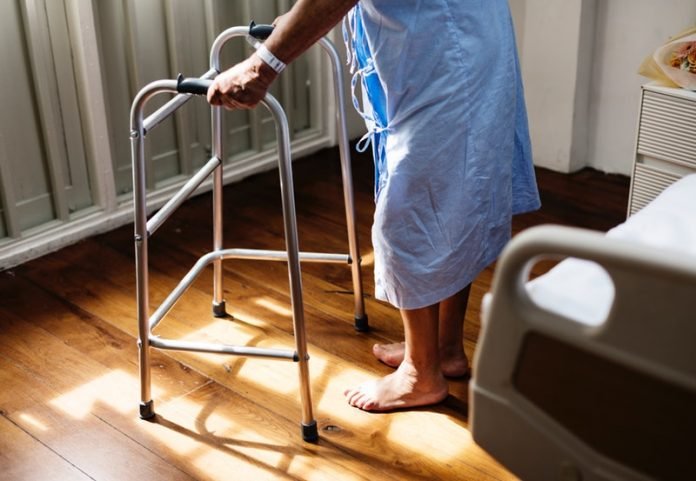
In a new study, researchers found that hip fractures in older adults can be very dangerous and often cause chronic illness, death, and high health care costs.
They estimated that 18 to 33% of all older adults who have suffered hip fractures will die within a year.
The rate is even higher among people who have dementia or who live in a nursing home.
Previous research has shown that as many as 50% of older adults face difficulties following a hip fracture, and may be unable to bathe, feed, or dress themselves (called “activities of daily living,” or ADLs).
They may not be able to get around for months to even years after their fracture.
This physical decline can lessen their quality of life, and some 20% of older adults go on to long-term care facilities after having a hip fracture.
Studies conducted on older adults who have had hip fractures suggest that the strongest indication that a person will experience a decline after a hip fracture is being disabled before the fracture occurs.
What’s more, hip fractures affect patients’ caregivers and can cause financial burdens when the individual requires more care.
In the new study, the team examined how older adults fare after suffering from hip fractures.
They examined data from 368 patients older than 65 who were having surgery to repair hip fractures during 2015.
The people had surgery for hip fractures at Yale-New Haven Hospital.
By three months after their hip fracture, 21 patients had died. By six months, five more patients had died.
Of the participants, 11% had dementia, 18% had depression, 19% had chronic kidney disease, and 21% had congestive heart failure.
The researchers found that cognitive impairment can be a major predictor of functional problems and disability following hip fracture.
They also found that the proportion of people who had difficulty performing their daily tasks three months after surgery did not improve after six months.
However, the proportion of people who were disabled and unable to get around was greater at three months than at six months.
This suggests that some older adults could recover following hip fractures, and some were able to climb stairs and walk two blocks.
The findings show that older adults who were independent before their hip fractures, but who had a cognitive impairment, experienced poorer outcomes after their hip surgery.
The team suggests that all older adults be screened for these conditions when they’re admitted to the hospital for hip fracture treatment and be screened throughout their hospitalization.
The study is published in the Journal of the American Geriatrics Society.
Copyright © 2019 Knowridge Science Report. All rights reserved.




